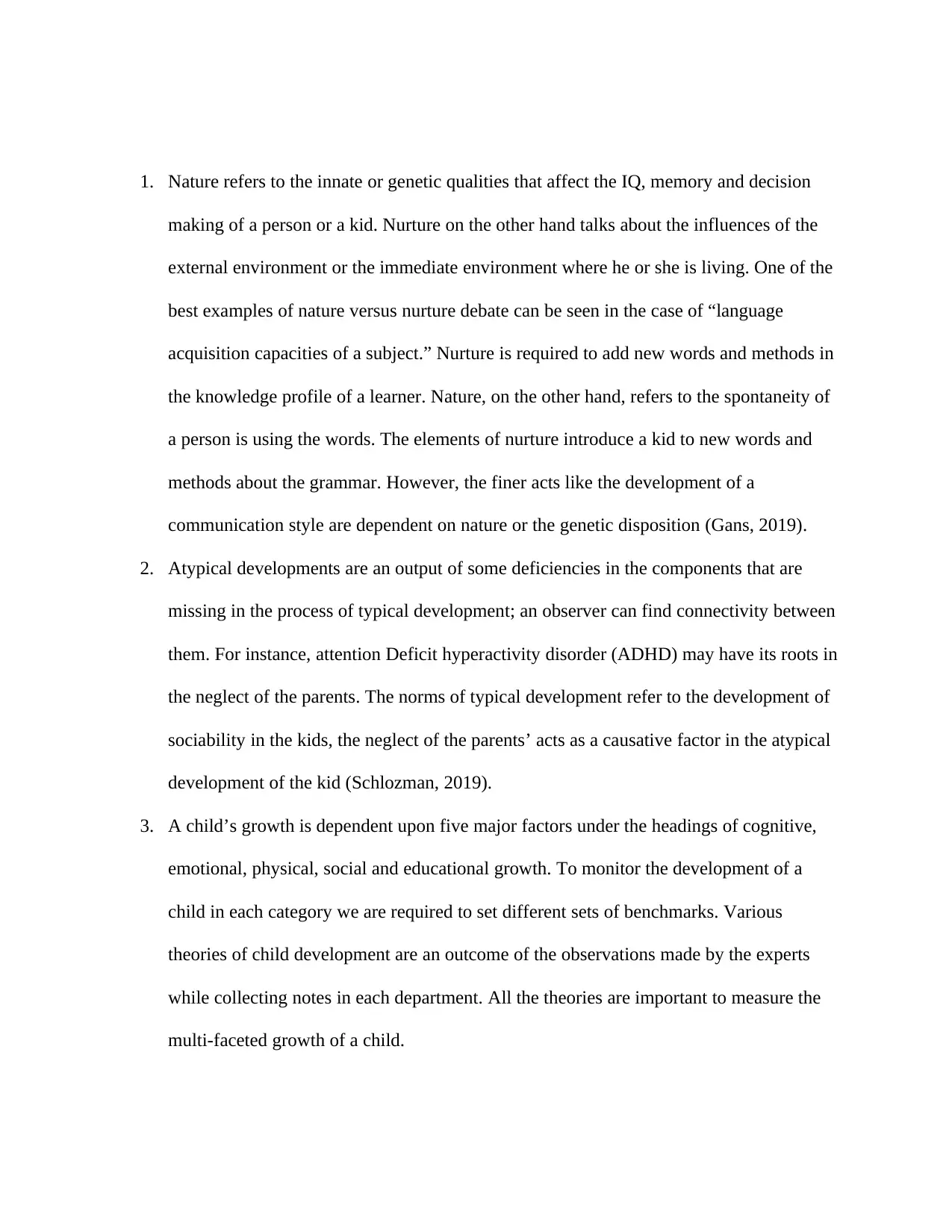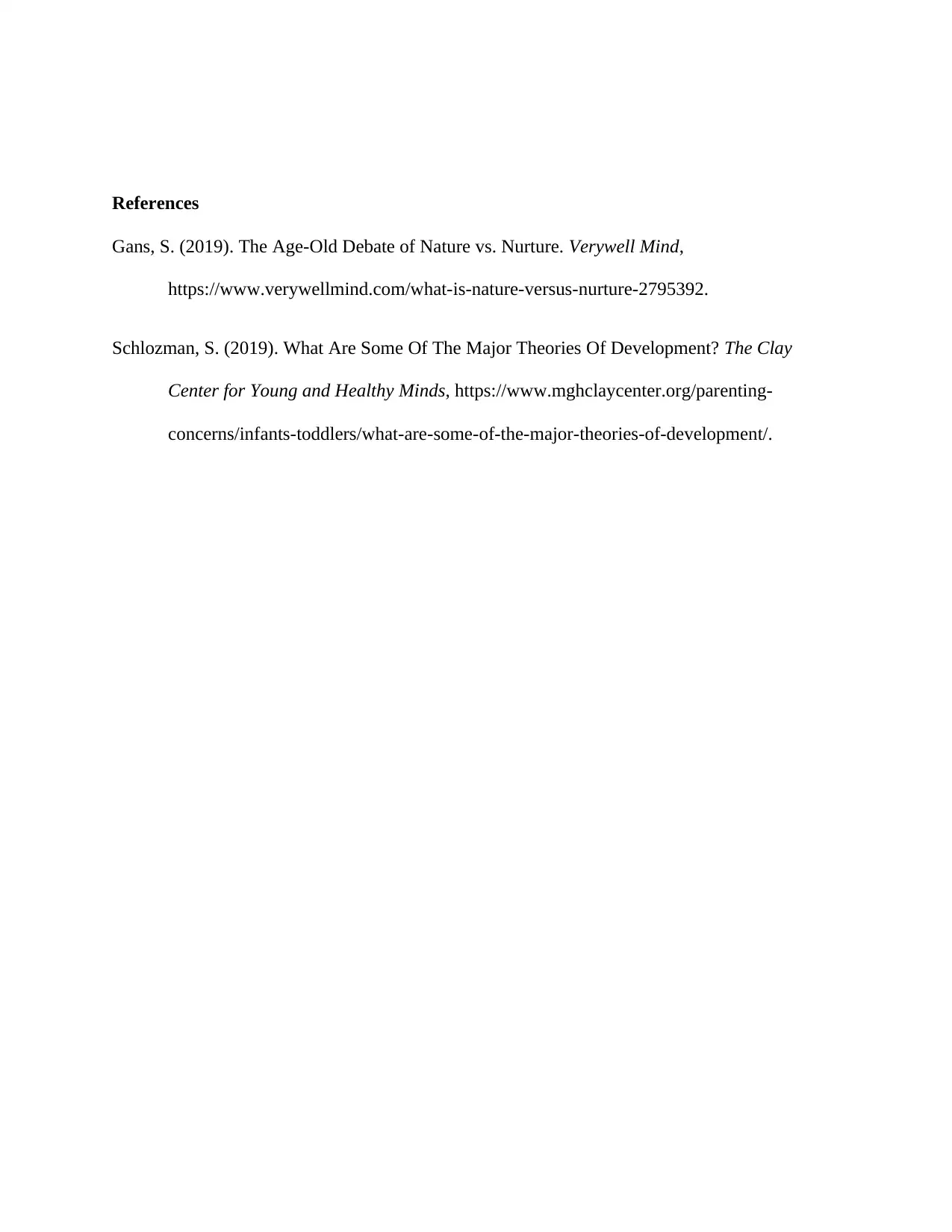Nature vs. Nurture and Its Impact on Child Development Psychology
VerifiedAdded on 2022/09/26
|3
|381
|20
Homework Assignment
AI Summary
This assignment delves into the nature versus nurture debate, examining the influence of genetics and environment on child development. It explores how nature and nurture interact to shape a child's cognitive, emotional, physical, and social growth. The assignment highlights the importance of both innate qualities and environmental influences in shaping a child's development. It also touches upon atypical developments, such as ADHD, and how they relate to the interplay of nature and nurture, emphasizing the need for monitoring and understanding the different factors that contribute to a child's overall development. The assignment references key theories and provides a framework for understanding the multifaceted nature of child development.
1 out of 3









![[object Object]](/_next/static/media/star-bottom.7253800d.svg)